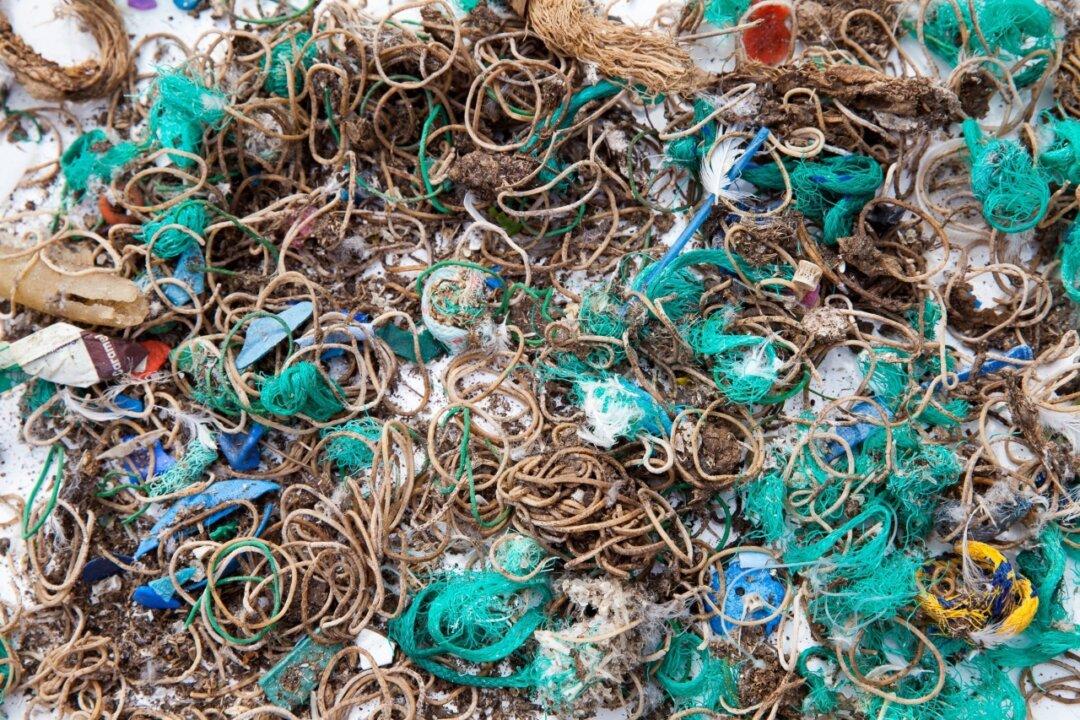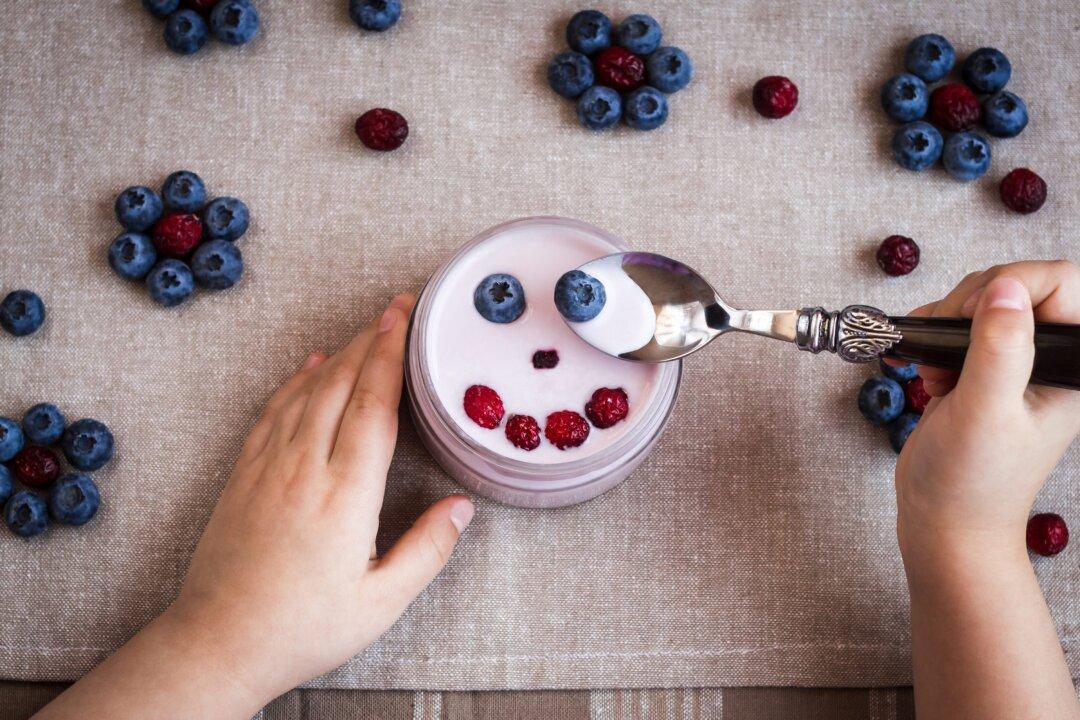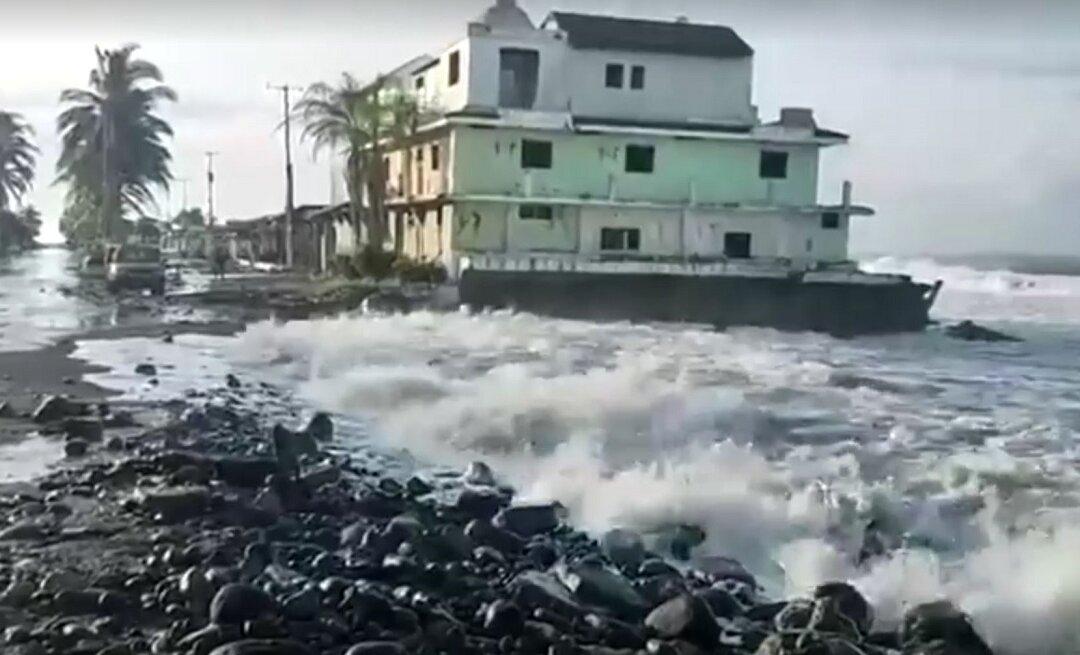For several years, conservationists have been puzzled by thousands of brightly colored rubber bands appearing on an uninhabited island off UK’s southwestern tip.
Their new theory is that sea birds have been mistaking the bands for worms, according to UK conservation charity the National Trust and the West Cornwall Ringing Group, which has been monitoring bird colonies on the island since 2013.




